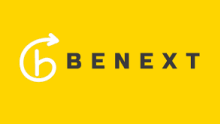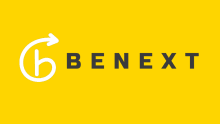The Journey of Inclusion for Self, Team, Organization: BeNext Cohort Certification on Gender Balance: Promoting Women

According to the New York Times, 4.2% of women held CEO roles in America’s 500 largest companies. Out of those 500 companies, 4.5% of the CEOs were named David. In a similar study by Morningstar, it was found that 7.2% of UK-based funds were run by a man named ‘David’ or ‘Dave’, compared with just 7.01% that were run by women. In 2018, it was found that there were more people named ‘David’ or ‘Steve’ in charge of FTSE 100 companies than there were women or ethnic minorities.
While these results might be surprising, they also reveal an urgent need for more diverse representation, particularly at the leadership level. The BeNext program on Gender Balance: Promoting Women speaks directly to this need. Running from July 12th - 15th August 2021, this program is designed for women leaders committed to accelerating their career growth within their organization and learning critical skills for heading up teams. The aim of this program is to help identify opportunities to overcome obstacles and speed up the realization of your potential and the potential of others.
Here is a glimpse of what you can expect from the five-week Gender Balance program, touching on some of the insights from the Lighthouse Keeper Speakers who will be joining us for the masterclass and power hour sessions, as well as accompanying us on the journey throughout the program.
Getting the Leadership Mindset & Attitude
Dr Ritu Anand, Chief Leadership & Diversity Officer, Tata Consultancy Services, emphasizes the importance of leaders having a “progressive” mindset over an “aggressive” one. Part of this involves leaders “looking around the table and seeing what they see.” Often, the problems become self-evident through the simple act of looking at who is present in the room or around the table when important decisions are being made. As Dr Anand points out, even today she receives invitations to panel discussions on hot topics in which “all panelists[...]are from one homogeneous group.” Representation matters, as well as visibility and leaders taking notice of who they invite to the conversation.
In the first week of the program, we focus on setting the context of women in leadership - what needs to change, and how to do it. The aim is to give practical, hands-on advice on how to supercharge your leadership skills and overcome existing barriers. The ‘Gender Balance: Promoting Women’ program is not only focused on how to develop an inclusive mindset, but also the right attitude to play the leadership game, negotiate for what you want and how to ‘brand’ yourself to attain greater success in your journey.
CEO - ‘A job for men’?
Is ‘CEO’ still considered strictly a ‘job for men?’ For most of us, the answer would be a resounding ‘no.’ And yet, according to a survey released earlier this year by Samsung Pioneers, the role of CEO is 9x more likely to be seen as a job ‘for men’ (29%) compared to a job ‘for women’ (3%). Similarly, the research showed men viewed leadership as a ‘male’ quality more strongly than women (28% vs 20%).
One of the key ideas in the BeNext Gender Balance program is that of overcovering why leadership is still perceived as ‘having a male face’ and what can be done to address this unconscious bias. Ewa Widlak, Gender Expert at the European Institute for Gender Equality and a program Lighthouse Keeper Speaker, explains the importance of visibility in accelerating success and undoing these biases, particularly for women who, for a long time, may have played the “invisibility game.”
“Visibility represents, at the same time, knowledge and power,” Widlak explains. “It is not a simple description of the power, but is something that, in reality, influences and gives sense to the power that leaders have. This prescriptive force of visibility is especially important for leaders in all aspects of our lives.” The Gender Balance: Promoting Women program addresses this question of visibility in Week 3: Communicate like a Leader, where instructors will cover how to deliver the right message, how to practice interest-based leadership and how to find the negotiating style that works for you.
Routines, Rigidity and Inertia
It’s not only habits and mindsets that can hold women back in their careers, but the nature of routines, rituals and expectations that are embedded into the core of what people do - and have always done - in their working lives. Maria Teixidor is a Lighthouse Keeper on the program and CEO of VUCA Solutions, an organisation that helps advise cultural organisations and technological start-ups on conflicts. Teixidor formerly served as President of the Grup Edelmira Calvetó, an entity set up by the Barcelona board with the mission of reclaiming the legacy of women in FC Barcelona’s history. Speaking about the topic of routines, Teixidor points out, “routines economize cognitive resources so it makes it quicker to decide and we don't need to think as much,” meaning we may fall back on these patterns and processes out of apathy, ease or even exhaustion. It is less difficult, after all, to keep things operating in the way they always have. But this does not enable or allow for progress.
“Even if these [routines] can have positive effects, they can also be dangerous and they can bring both rigidity and inertia. And that's where they can be an obstacle to change and an obstacle to learning,” Teixidor points out. “So, what we need to do is at some point in our careers, and at some point, as organizations, is to stop and review and see if these routines are leading us to some blindness - to some bias - that is leading us to make decisions that are not the ones we need to have or the ones we want.”
In Week 4: Drive Positive Change in Your Organisation, we examine ways to press pause, review these routines and check them through for biases or barriers, looking at aspects such as speaking up, tips for networking and the importance of small gestures. In this way, the learning journey is not only for the individual, but one that will bring great benefits to the entire organisation.
On the journey to promoting and empowering one another, it’s important we don’t go it alone. That’s why we encourage teams of women to join this program together, championing each other throughout the course to make lasting changes when they return to the workplace.
You can find out more information, along with dates and a detailed description of the week-by-week program content, by clicking here.






